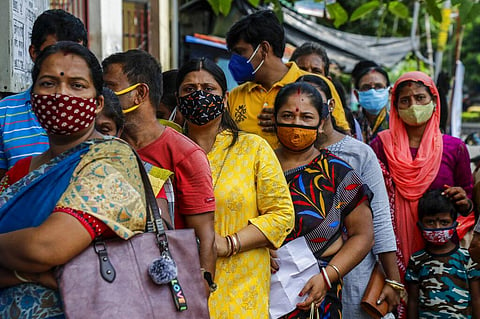

NEW DELHI: Detection of C.1.2 variant of the Covid-19 virus in South Africa has created fresh worries for health authorities in India, already rushing to prepare for a third wave, while pushing its coronavirus genomic surveillance programme on a higher level of alert.
The variant is being called the most mutated version of the virus yet, even though a concrete understanding on its clinical characteristics and transmissibility is yet to emerge.
As per a yet to be peer-reviewed study, C.1.2 has since been found in China, the Democratic Republic of Congo, Mauritius, UK, New Zealand, Portugal and Switzerland apart from South Africa.
This variant has been termed the world’s most mutated variant since the beginning of the pandemic even though many countries are still struggling with a fresh surge in cases and hospitalisation, caused by Delta — a highly transmissible variant first detected in India.
While about 52% of the mutations in the spike region of C.1.2 sequences have previously been seen in other variants of concern and variants of interest such as the Delta variant, there are additional mutations in this variant.
The mutations N440K and Y449H, which are associated with immune escape from some antibodies, have also been noticed in C.1.2.
“While these mutations are not characteristic of current VOCs/VOIs, they have been associated with escape from certain class 3 neutralising antibodies,” the authors wrote.
However, the World Health Organisation on Tuesday said the variant did not seem to be spreading at a higher rate as compared to others in circulation as of now, adding that it was monitoring the variant as the virus evolves.
“It does not appear to be increasing in circulation,” WHO spokesperson Margaret Harris told a UN briefing, adding it has not yet classified the variant as VOC.
Back home, authorities attached with the Centre’s Covid genomic surveillance network INSACOG said the virus samples collected from travellers abroad will be subjected to genome sequencing to check for the presence of this variant.
Partha Majumder, a senior scientist associated with the National Institute of Biomedical Genomics under the department of biotechnology, said while India needs to be on alert to detect any mutants that may be a VOC, there is no need to panic unless it is proven that the variant is more transmissible or capable of causing more severe disease. “And we do not know that about this variant yet,” he said.